Today in History: Obote overthrown for second time
The announcement was made over Radio Uganda at about midday. Gen. Lutwa was sworn in as president shortly after the announcement.
UGANDA'S HISTORY
On July 27, 1985, a military coup staged by Brigadier Bazilio Olara Okello resulted into the overthrow of President Obote and Lt. Gen. Tito Okello- Lutwa being declared chairperson of the military council and head of state.
The announcement was made over Radio Uganda at about midday. Gen. Lutwa was sworn in as president shortly after the announcement.
Lt. Gen. Tito Okello- Lutwa regime
"The Okello regime was the most turbulent in the country's history. Food supplies to the city centre were cut off, banks were being robbed, trucks hijacked, the economy was crumbling"
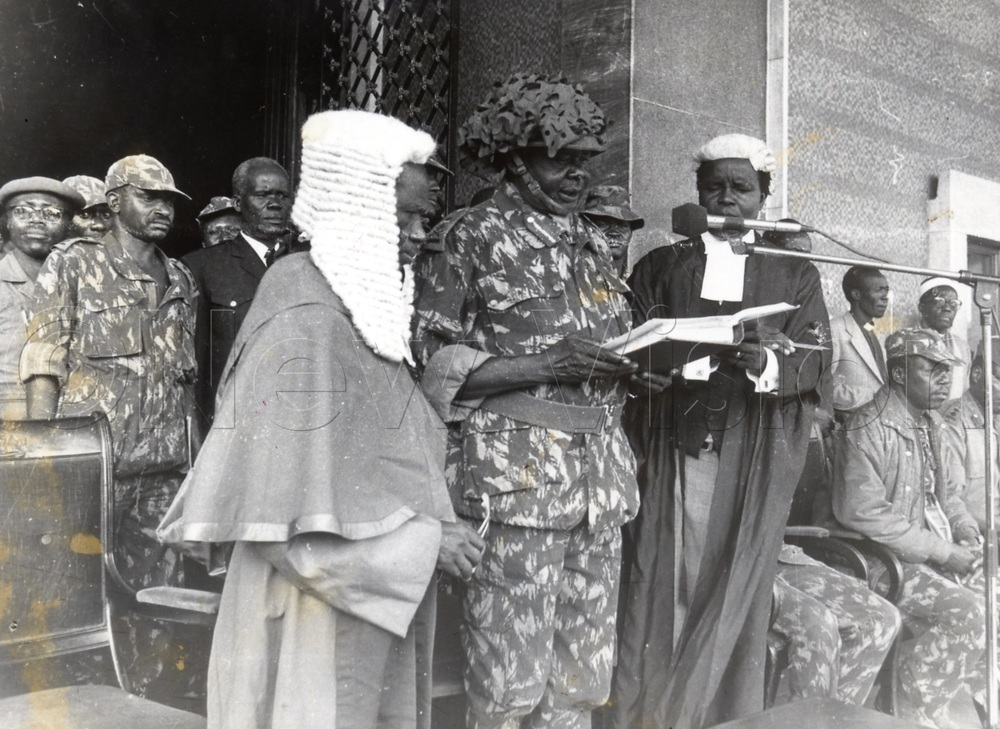
For Gen. Tito Okello Lutwa and his military junta, power was never a bed of roses. From the day Tito and his comrades Bazilio Olara Okello and Col. Gad Wilson Toko toppled Dr Apollo Milton Obote in a military coup on July 27, 1985, their government was shaky until it was overthrown by the National Resistance Army (NRA) on January 26, 1986.
In Revolution 1979-1986, Maj. Gen. Pecos Kutesa, describes the Okello regime as the most turbulent in the country's history. Food supplies to the city centre were cut off, banks were being robbed, trucks hijacked, the economy was crumbling and each part of Kampala city was under the control of different fighting groups.
The Yoweri Museveni-led NRA that had since 1981 fought against Obote's regime refused Okello's calls to join the military junta. It pointed out that although Obote had been toppled, the killers were still operating in the new government and the NRA did not want to be associated with the regime.
There were attempts at peace talks which NRA attended. However, it turned that although Okello was interested in a positive outcome, he was unable to rein in his murderous soldiers. So NRA opted for war, the peace pact collapsed and six months after he took power Okello had lost it.
EARLY LIFE
Gen. Tito Okello Lutwa was a man of no mean achievements. Born in Nam Okora, Kitgum district around the First World War in 1914, little is known about his educational background. However, as fate would have it, he joined the King's African Rifles on May 16, 1940, and like former president Idi Amin Dada, he battled the Mau-Mau in Kenya on the side of the British colonial masters in 1957.

Okello later joined the Uganda Army, rising to the rank of Lieutenant in 1962 and Colonel by 1968. When Amin toppled Obote in 1971, he fled into exile in Tanzania. In 1978, he commanded the Kikoosi Maluum, a faction which fought alongside the Tanzania People's Defence Forces to topple Idi Amin in 1979. Consequently, he became part of the Military Commission that was instrumental in the running of the country after the fall of Amin and was decorated Lieutenant General in 1984.
His wife Esther was rarely seen in public. One of their children, Henry Okello Oryem is the current foreign affairs, state minister.
ASCENT TO THE PRESIDENCY
Phares Mukasa Mutibwa, the author of Uganda Since Independence: A Story of Unfulfilled Hopes, Phares Mukasa Mutibwa, narrates that Okello was swept into power on the crest of a military mutiny in 1985 as a result of bad blood between Acholi and Langi soldiers.
The appointment of Brig. Smith Opon Acak, a Langi, as chief of staff to replace Maj. Gen. David Oyite Ojok did not go down well with the Acholi who had expected one of their own, Brig. Bazilio Olara Okello, a more experienced officer, to be appointed.
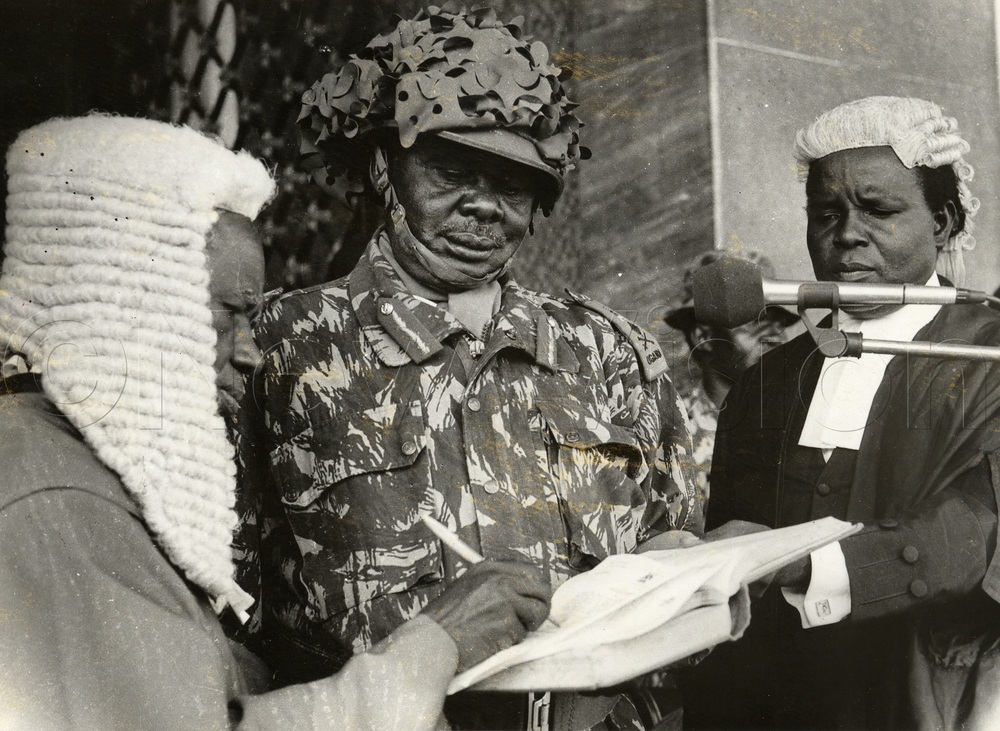
By 1984, the NRA war had intensified, taking advantage of the divisions within the army while anarchy reigned. It was only a matter of time before an army mutiny took place.
Trucks laden with ammunition and soldiers went to Gulu and on July 27, 1985, the British Broadcasting Corporation (BBC) announced the fall of Obote's regime in a bloodless coup, followed by a second exile. "Fellow citizens, it is time to reconcile," boomed Okello Kolo the first man to announce the coup. "Dr Milton Obote has been overthrown by the UNLA."
What followed were truckloads of gun-wielding UNLA soldiers driving through the streets of Kampala. Obote, meanwhile, fled to Zambia, where he died in October 2005.
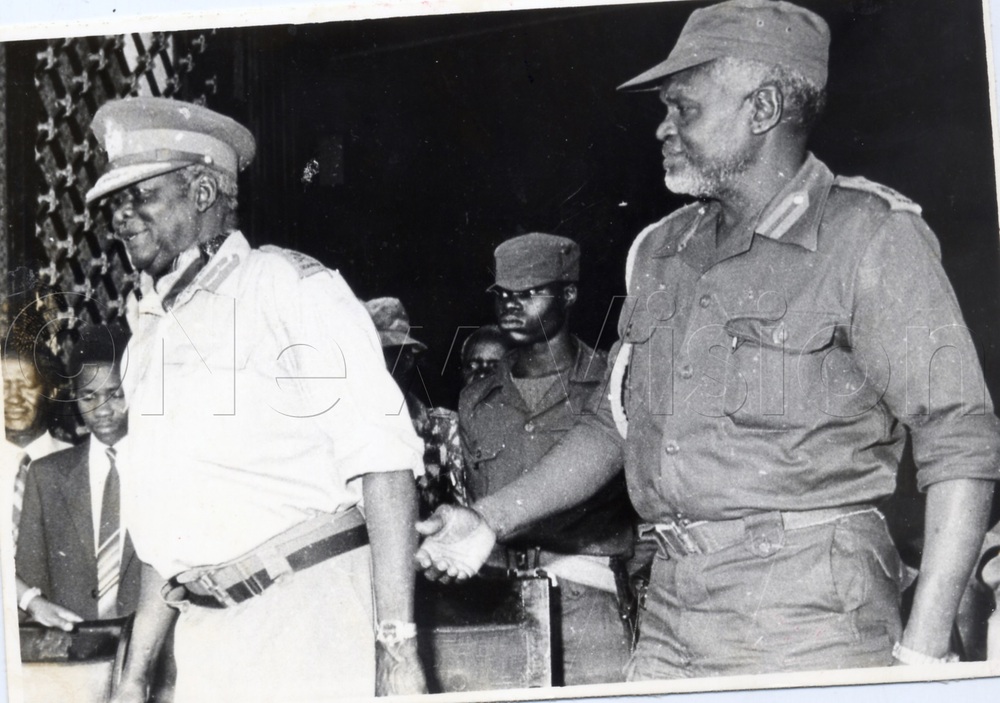
Aware of the tense political mood in Buganda, Okello and his junta tried to win support from Buganda by punching the wind with clenched fists (the Democratic Party symbol) while chanting DP egumire! DP egumire! Aata leo - egumire! Ata kesho egumire. (The DP is strong).
Buganda was then a DP stronghold, with it having won all the parliamentary seats during the 1980 election. But the reception in Buganda was cold. There were no thunderous drums or traditional ululation in Buganda to celebrate Obote's fall. Okello announced that Uganda would be governed by a Military Council he would lead for 12 months before general elections took place.
Okello was faced with the problem of divisions in the army which he had to rely on to fight the rebels. To survive in government, he tried to forge a coalition government with the various political parties and warring factions like the Federal Democratic Movement (FEDEMU), Uganda National Rescue Front (UNRF), the Uganda Freedom Movement (UFM) and Museveni's NRA. The NRA, however, thwarted the move and continued fighting the UNLA.
To forge reconciliation on the political front, Okello brought on board Obote's henchman Paulo Muwanga as the Executive Prime Minister.
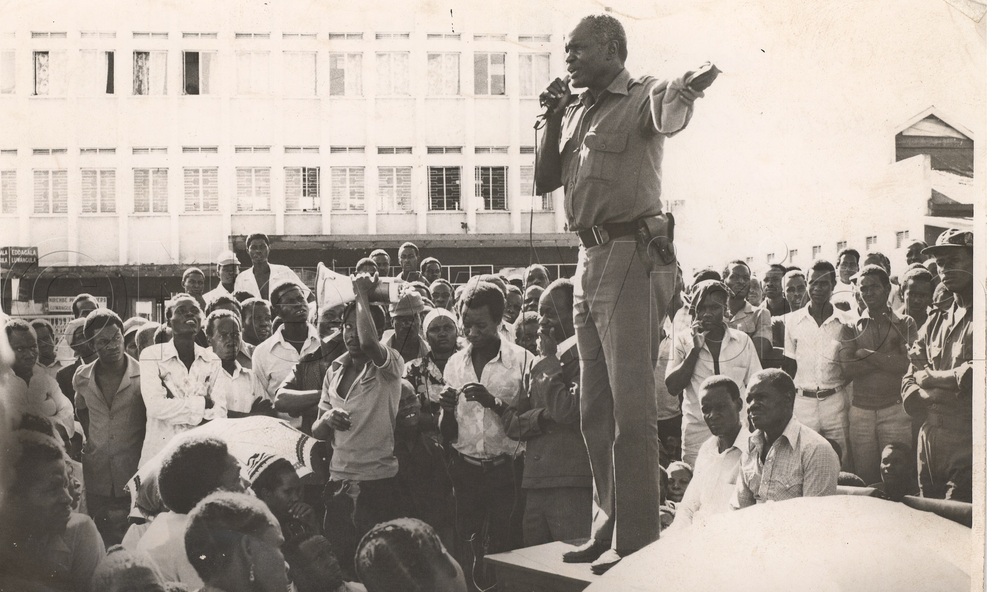
Others in the cabinet comprised Paul Kawanga Ssemogerere, the then DP president general and the Conservative Party's (CP), Mayanja Nkangi and Jaberi Bidandi Ssali who was the Uganda Patriotic Movement (UPM) secretary-general. But protests from some political and fighting groups forced him to drop Muwanga who they associated with Obote and UPC. Eng. Abraham Waligo was appointed Executive Prime Minister.
Okello's administration also included Dr Olara Otunnu and Col. George Nkwanga, the commander of the Federal Democratic Movement who was killed at the Nile Hotel in the final days of the junta.
Museveni wanted certain conditions met before joining the military junta. He wanted the NRA to be given seven seats in the 22 member Military Council, the position of vice-chairperson on the council and a public inquiry into human rights violation and perpetrators severely punished.
In the end, the Nairobi Peace Talks brokered by then Kenyan president Daniel Arap Moi failed to attain the purpose for which an accord was signed due to lack of mechanisms to implement the agreement. With the failure to enforce the peace, Museveni remained a thorn in the flesh of the Junta, taking more territory while getting closer to Kampala. Roads to Masaka, Mubende, Mbarara and Katonga were closed.
On January 26, NRA announced the capture of power and Okello fled the country. Museveni became president.
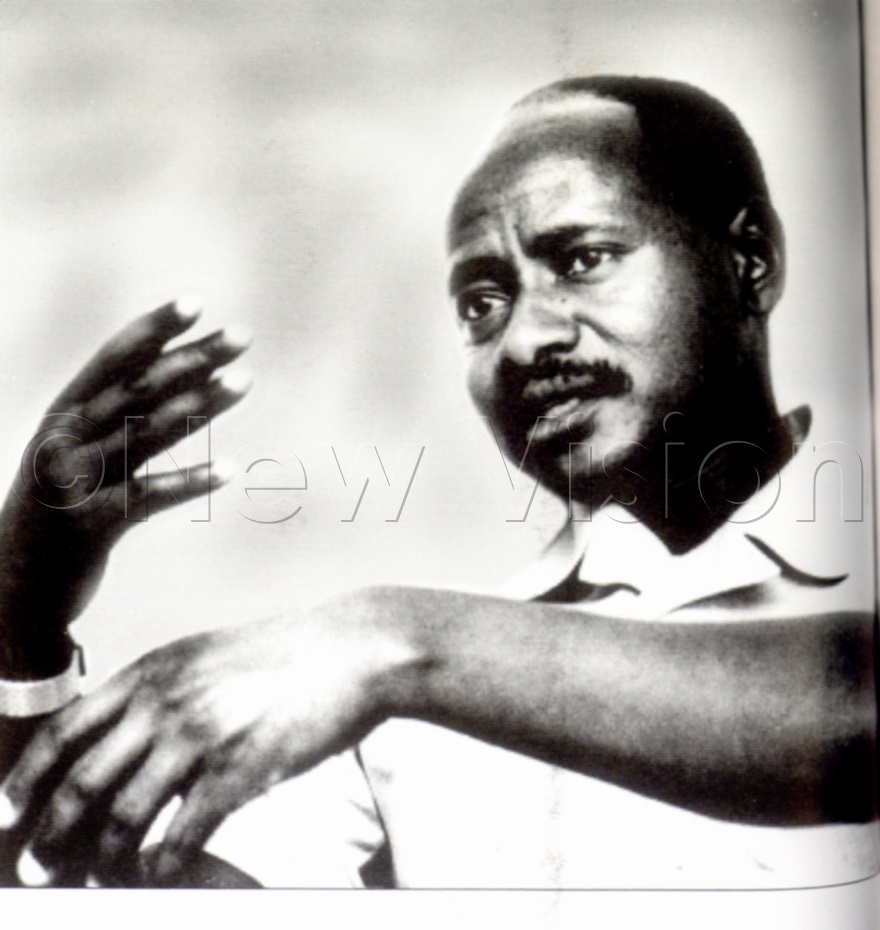
Okello lived in exile in Tanzania until November 1993 when he returned and lived as a former head of state with full privileges. He died on June 3, 1996, aged 82. At his funeral, Museveni described him as a great man who was dedicated to the service of this country and would be remembered for his efforts to bring peace to Uganda.
In January 2010, he was posthumously awarded the Kagera National Medal of Honour for fighting against Amin in the 1970s.